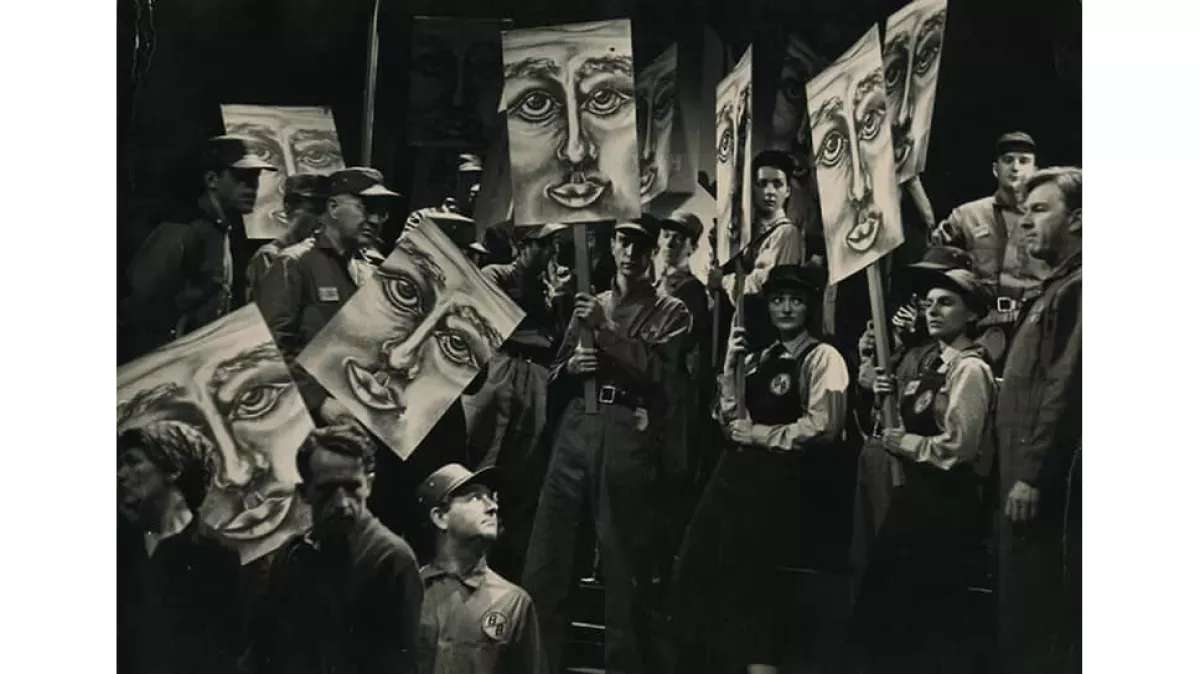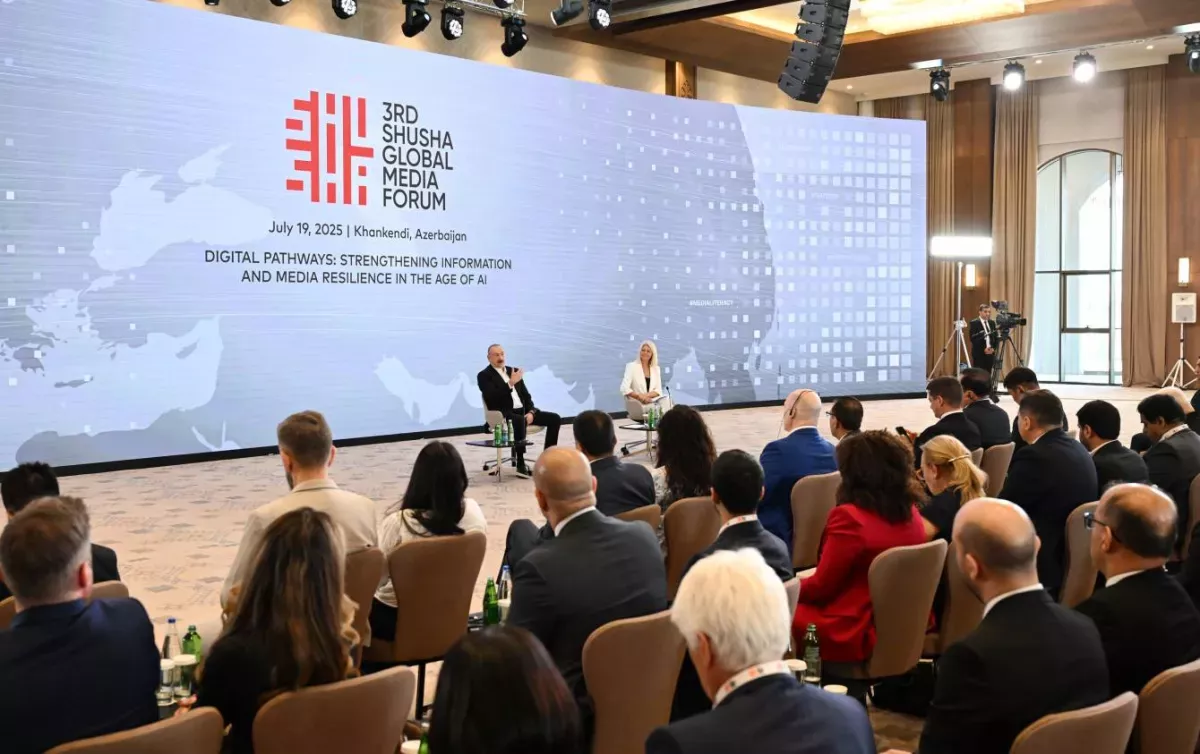Azerbaijan defends its national interests in an era when social media shapes minds Truth over trends
We live in the 21st century, in the midst of a staggering technological boom. Consider the 2024 Nobel Prizes in physics, chemistry, and medicine/physiology: they recognized discoveries and inventions that made neural network–based machine learning possible; applications of these breakthroughs in climate modeling, solar energy development, and medical image analysis; the study of protein structures, including AI models capable of predicting their complex formations; and the discovery of microRNAs, revealing fundamental mechanisms for regulating gene activity.
Impressive, isn’t it? Yet paradoxically, the world is also witnessing a decline in the general intellectual level of its population. More alarming is the widespread moral and ethical decay—especially as social media begins to dictate human behaviour.

Yes, social media is itself a product of this technological surge. But the question is: who is really controlling it? Someone is choreographing the flow of information and influence, setting the same patterns for people across the globe. And human beings, often silently and unquestioningly, consume this orchestrated content—sometimes even content that fuels violence, fear, and suffering.
Paradoxically, the world today is incredibly educated. At the same time, the internet provides an enormous amount of information essential for growth and progress. Children attend all kinds of preschools from a very young age. Yet, how easily this vast knowledge can be guided. The question is: guided toward where? Or is that already known?
Some might say this guidance leads us into the “land of likes,” where failing to react to a friend’s new outfit online is considered bad manners. In this way, social media dictates trends—and not just fashion—but also what is deemed “necessary” behaviour. Any other approach is simply unacceptable, if not openly criticised. At the very least, it is discussed with the prefix “anti.”
What is happening inevitably brings to mind parallels with the work of the famous 20th-century British writer and journalist George Orwell. His timeless dystopian novel 1984, published in the middle of the last century, feels strikingly modern—and, indeed, alarmingly timely.
“It was as though some gigantic force were pressing down upon you—seeping into your skull, hammering your brain, driving fear into you until your own convictions were shattered, compelling you not to trust even your own senses.” Orwell’s words strike with unrelenting force.

“In the end, the Party will declare that two plus two equals five—and you will have to believe it. Sooner or later, it will issue such a decree; the very logic of its power makes this inevitable. Its philosophy silently denies not only the reliability of your perceptions, but even the very existence of the external world. The heresy of all heresies is common sense.”
“It was as if some colossal force were pressing down on you—seeping into your skull, crushing your brain, beating your convictions out of you with fear, compelling you to distrust your very own senses.” Orwell’s lines strike like a heavy blow.
“In the end, the Party will declare that two plus two makes five—and you will have to believe it. Sooner or later, it will issue such a decree; the logic of its power leads inevitably to that point. Its philosophy quietly denies not only the truth of your perceptions, but even the very existence of the external world. The heresy of all heresies is common sense.”
Without doubt, some readers of these lines may instantly exclaim that Orwell was referring to the authoritarian USSR, while today we live under capitalism, which supposedly brings with it a democratic way of life. Let’s set aside the debate on democracy for now and instead ask: what if the very notion of “the Party” has simply been replaced today by, say, the G7—or another international organization promoting across the globe an ideology of “market economy,” “inclusive capitalism,” or “the rights of certain affectionate minorities,” and so on? And everyone, without exception, is expected not only to imitate these lobbied trends while presenting themselves as their “genuine” supporters, but also, to a great extent, to abandon the worldview shaped by previous generations.
Yet, as Orwell himself subtly noted, those who are constantly “fed” such biased information may gradually begin to treat absurd ideas with a degree of acceptance. “After all,” he writes, “how do we know that two plus two makes four? Or that gravity exists? Or that the past cannot be altered?”
Thus, black turns into white, white becomes colored, and the colored fades into invisibility. This cycle, in such a form, gradually engulfs the planet—when people begin to take any information from social media at face value.
Even the slightest doubt disappears that a given information feed may be half fake, designed with the sole purpose of steering the human mind in a desired direction. As George Orwell once asked: if “the past and the external world exist only in the mind, and if the mind itself can be controlled—then what?”
Yes, probably nothing. Except that you begin to believe: two plus two is somehow five—or at most six. And the killing of innocents becomes almost framed as “the cleansing of the planet.”
This is why the importance of following traditions and spiritual values becomes ever more relevant—where the priority must be given to one’s roots, in the broadest sense. Of course, this does not mean that social media or search engines should be dismissed altogether. But it does mean that each of us must approach information with great responsibility, especially when it is so often presented as the ultimate truth.

Back in 2006, Azerbaijani President Ilham Aliyev stressed that, in the context of “our national interests, we will not make concessions to anyone.”
In 2025, during the III Shusha Global Media Forum—nearly 20 years later—the head of state once again emphasised the protection of national interests as a cornerstone of Azerbaijan’s policy.
This underscores for all of us the importance of evaluating information—especially that disseminated by the same biased, anti-Azerbaijani forces—exclusively through the lens of its alignment with the country’s national interests.








